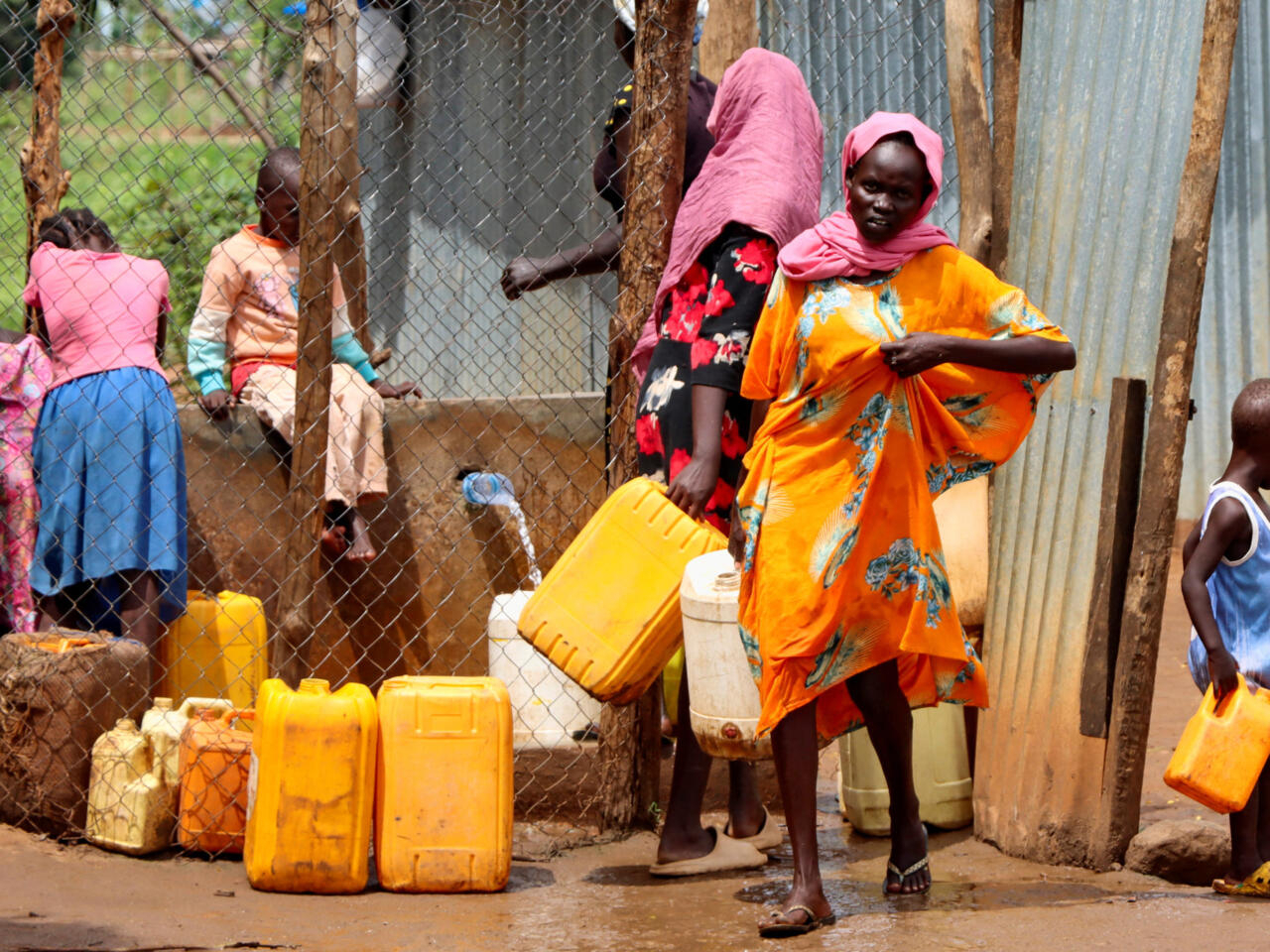About two months after heavy clashes around his home in Sudan’s capital drove Sherif Abdelmoneim to flee, soaring rent and food costs forced the 36-year-old and his family of six to return to a city where fighting still rages.
Most of those who fled Khartoum after war between the army and the paramilitary Rapid Support Forces (RSF) broke out in mid-April have not returned. They face malnutrition, floods and scorpions as they depend for survival on handouts and meagre aid relief, the generosity of host communities stretched increasingly thin.
More than 5.25 million of Sudan’s 49 million people have been uprooted since the fighting erupted, according to U.N. figures. Over 1 million of those have crossed into neighbouring countries, but more than 4.1 million have stayed in Sudan, where they have come under increasing financial pressure.
“The states (outside Khartoum) are safe but the prices are expensive and rents are high, and we cannot continue with that,” Abdelmoneim said by phone from Omdurman, a city adjoining Khartoum where he has rented a house in an area where he can still hear artillery fire but is no longer in the midst of clashes.
The conflict has brought Sudan’s stagnant economy to its knees, blocking much trade and transport, hampering farming, halting many salary payments, and causing vast damage to infrastructure.
The country now has to draw on what meagre resources are left to support an internally displaced population which, when those made homeless by previous conflict are included, reaches nearly 7.1 million, more than any other in the world.
Aid workers expect that more of those who had paid rent or lodged for free when they fled the capital will end up in collective shelters as their funds dry up.
“We are hospitable but people are handling more than they can,” said Omar Othman, a government official in Kassala, where he said rents had risen sharply. “If the war continues, these people came with small savings so they will need shelter.”
‘LABOUR MARKET PARALYSED’
Host communities in areas little affected by fighting have been reeling from the knock-on effects of the war.
In Rabak, about 275km (170 miles) south of Khartoum, many young people had been trying to make a living in factories or as day labourers in the capital before the war broke out.
“For the locals the labour market is paralysed. Khartoum is the engine for the rest of the country,” said resident Fadeel Omer.
Displaced people in the city unable to afford rent were lodged in shelters with crumbling walls and scorpions, and several malnourished children had been dying daily in the city hospital, he said. Large groups had headed back to Khartoum.
In Merowe, 340km north of Khartoum, salaried workers and farmers have seen their income dry up, and local volunteers are struggling to provide basic meals to the displaced, some of whom were sleeping on sofas or tables, said lawyer and local volunteer Izdihar Jumaa.
Damage to infrastructure in the three regions worst affected by the war – Khartoum, Darfur and Kordofan – could be $60 billion, or 10% of its total value, said Ibrahim al-Badawi, Sudan’s former finance minister and an economics researcher. He estimated that gross domestic product could plunge 20% this year.
“If the war stops, Sudan would need emergency economic support of $5-10 billion to revive the economy,” he told Reuters in an interview in Dubai.
“The continuation of the war will lead to the destruction of the Sudanese economy and the state.”
AID EFFORT SHORTFALL
Since the start of the war, prices for many products soared. The currency has fallen as low as 900 Sudanese pounds to the dollar on the black market in the Red Sea city of Port Sudan, a hub for government officials and aid workers, from about 560 pounds in April.
A continuing lifeline for many is remittances sent by Sudanese living abroad, said Omar Khalil, who fled to Port Sudan from Omdurman in June with his wife and three children.
“They are the ones bearing this burden on their shoulders,” he said. “This cannot last forever.” Khalil and his wife, both former art teachers, now make ice cream at home to sell to supermarkets.
International aid efforts for Sudan are severely underfunded, with less than 25% of the $2.6 billion required for this year received by mid-August, according to the United Nations. Aid workers say relief operations have also been hindered by government red tape and the breakdown of services and logistics based in the capital.
Authorities are nervous about relief operations by local volunteers and want the displaced to be housed in camps, but there are no funds to run them on the scale that would be needed, said Will Carter of the Norwegian Refugee Council.
Across Sudan, some displaced people who had been renting were being evicted, though most were still lodging with extended families or strangers, he said. “We’re going to have an impasse – people squatting will be destitute within these cities,” he added.
Source: Reuters






